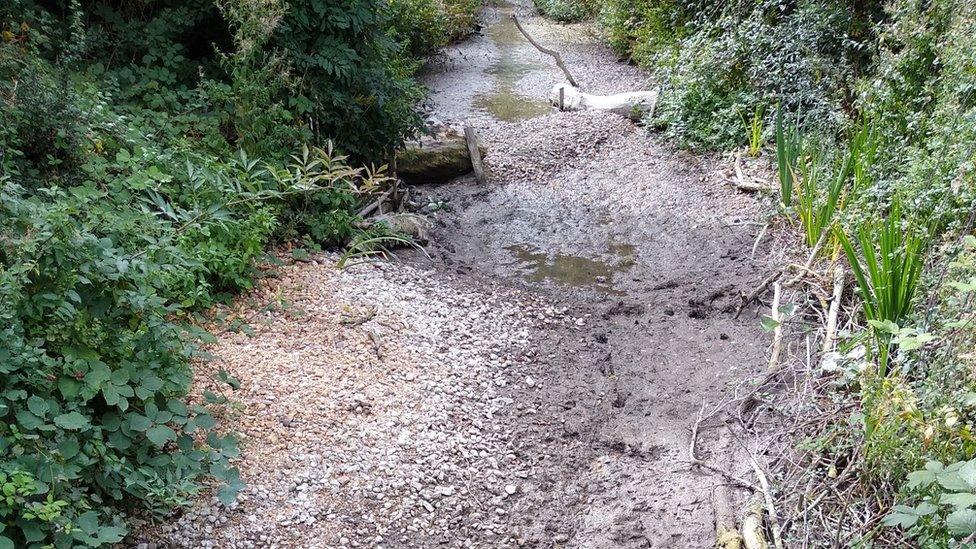Threats to chalk streams addressed by experts
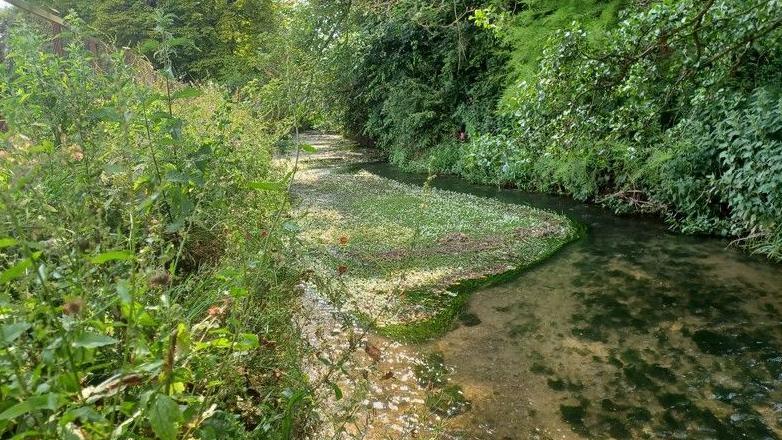
The River Granta is a local chalk stream in Cambridge
- Published
Threats posed to a city's natural chalk streams are to be addressed by experts.
It is estimated that 85% of the world's chalk streams are found in the UK, with the majority located in the south of England and East Anglia and, fed by springs in chalk bedrock, provide clean and clear water that supports a huge variety of wildlife.
Many in Cambridge, including Hobson's Brook and Cherry Hinton Brook are being degraded by a range of factors including water extraction, pollution, the erosion of riverbanks and invasive species.
Experts are gathering later this month at Anglia Ruskin University (ARU) to discuss these issues.
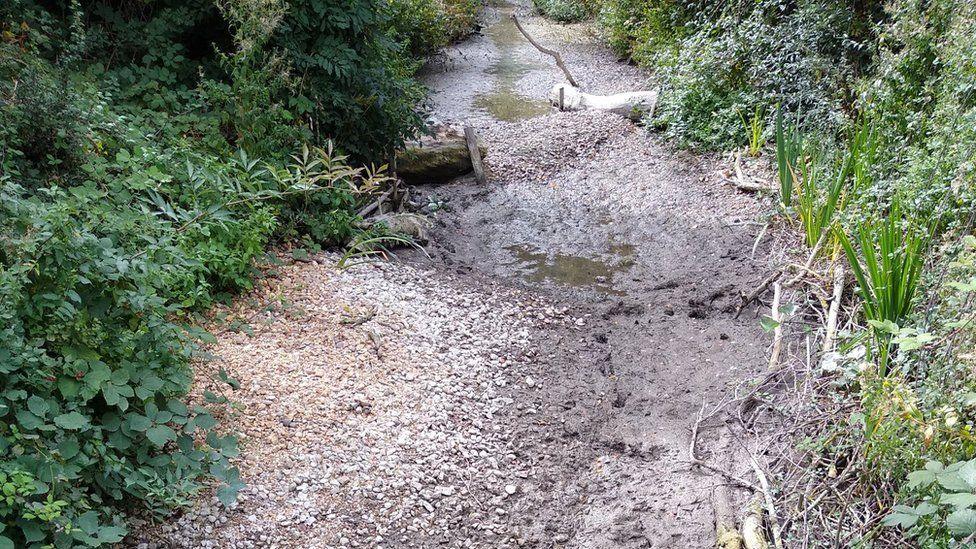
A chalk stream in Coldham's Common in Cambridge dried up in 2022 because of the hot and dry weather
Chalk streams are rare habitats, often referred to as England's equivalent of rainforests, external.
Most water we drink in the East of England comes from rainwater stored deep beneath our feet in natural chalk aquifers, which feed our chalk streams, the Environment Agency said.
Chalk streams also need good water quality for different species of fish, plants and insects to flourish.
However, they face significant challenges in the 21st Century due to complex problems worsened by climate change and population growth.
The Greater Cambridge Chalk Stream Project, external - a collaboration between Cambridge City Council and ARU - is bringing together experts to study the threats faced by local chalk streams and highlight practical ways to protect them at a free public conference later this month.
Emma Dominic, a research assistant at ARU for the Greater Cambridge Chalk Stream Project, said: "Chalk streams are globally rare freshwater habitats and we're fortunate to have them in and around the city.
"However, many of these precious ecosystems are now significantly degraded and at risk."
She said the project aimed to further understand habitat loss, biodiversity reduction and water quality issues.
"By bringing everyone together, including involving local community volunteers, we hope to obtain detailed information about each stream to help inform Cambridge City Council's restoration strategies and safeguard our chalk streams for future generations."
Get in touch
Do you have a story suggestion for Cambridgeshire?
Follow Cambridgeshire news on BBC Sounds, Facebook, external, Instagram, external and X, external.
Related topics
- Published18 February
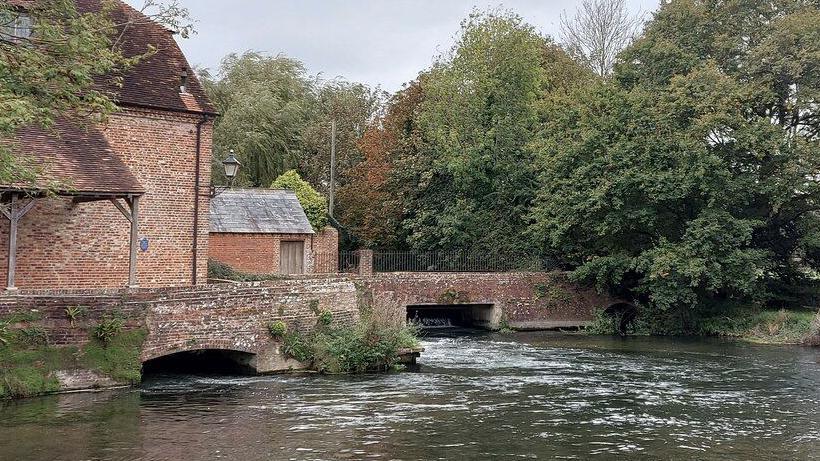
- Published20 March
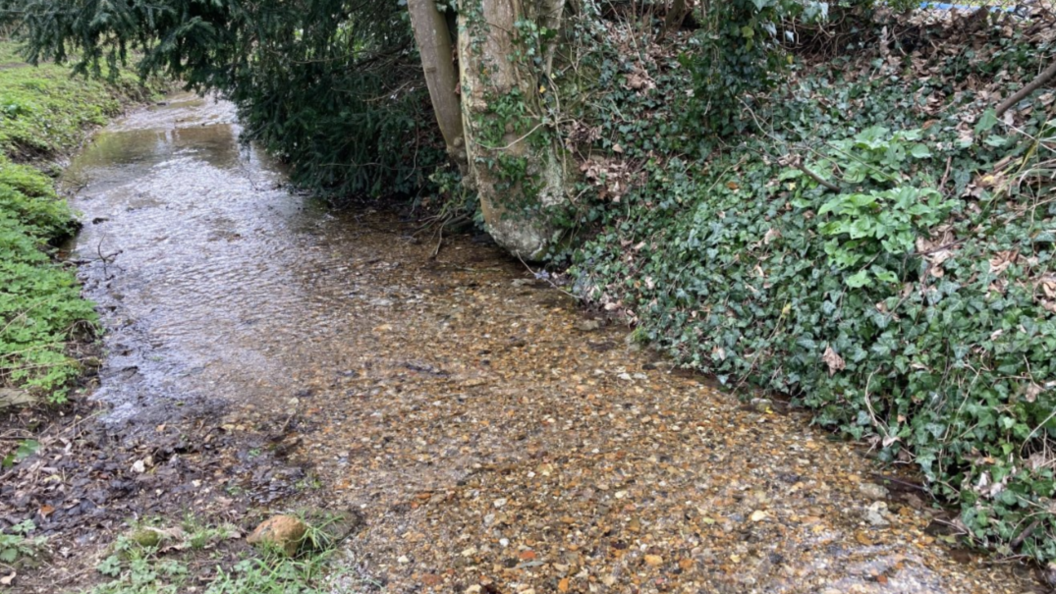
- Published15 June 2023
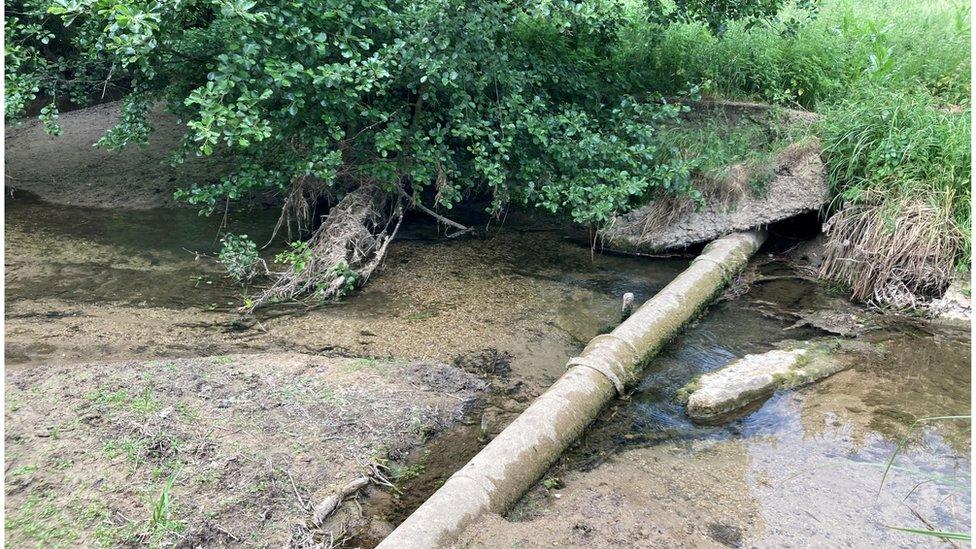
- Published29 September 2022
